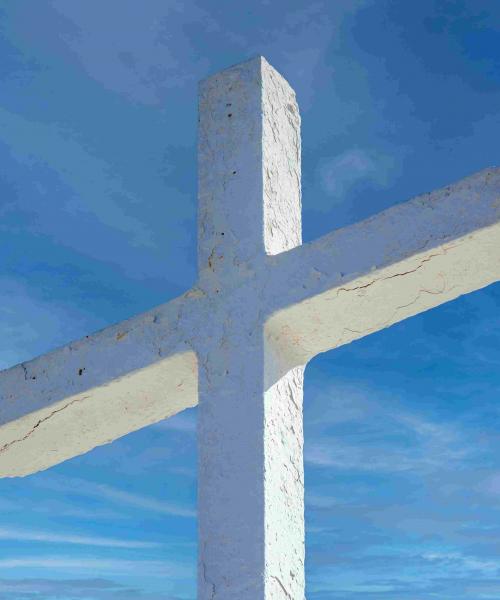
Comfort
Comfort is the command to the prophet. The message of assurance after a time of distress. The very word – COMFORT – puts us at ease…but Isaiah’s words turn out to be anything but comforting…Mountains and hills laid low – rough places smoothed over. Valleys filled – the very landscape of our lives overhauled. Where is the comfort in that?
I’ve made no secret of the fact that Isaiah is my favourite part of the Bible. So much of what we find here is reflected in what we will learn about Jesus. Images of shepherds and sheep – of light driving away darkness – the notion of God in the midst of God’s people; a people longing for peace, and rescue, and lasting comfort. Isaiah describes everything that Jesus embodies. But what I like most about the book of Isaiah is that it doesn’t sugar coat anything.
The prophet is clear about the state of things, and clearer still about the kind of work that is needed for real restoration. Comfort my people, says the voice of the divine – prepare them for a massive change for the better.
The prophet has his work cut out - the people have resigned themselves to a reality that is not what they imagined. The path to God’s promised peace seems to be obstructed - either by the interference of world events - invasions, and such - or by the failure of the people to follow the sacred path in their dealings with one another. So, the words of comfort are…uncomfortable.
But we should not be surprised.
These words of comfort are the starting place for the remarkable story that the gospels would tell - Mark’s gospel in particular. While declaring ‘the beginning of the good news…’ Mark starts with an echo of Isaiah’s complex comfort by introducing us to John.
“The beginning of the good news of Jesus Christ, the Son of God.” These are the opening words of this earliest of Gospels. An odd proclamation, because for most of us, Christmas marks that particular beginning.
The infant Jesus; nervous parents; curious visitors. The story we know so well points to something new, and wonderful, and tender, taking place in Bethlehem of Judah, and our Christmas celebrations affirm that year after year. That is where we imagine our comfort comes. Lights and decorations, presents and parties, song and story; this how we share the ‘good news’ of Godo’s promised comfort.
Our heads and hearts are already there – at the crèche; in the small, star-lit stable, with the angel’s afterglow still shining in our eyes. But Mark’s gospel starts with Isaiah; prophet to the conquered nation, and champion of those without hope. Together, prophet and gospel draw our attention to the one who will help sort out the challenges of life lived as a people called by God.
A messenger has been promised, and sent, to generation after generation. God has never failed to raise up prophets to point toward the promise that one day, all would be made new. The rough places plain – the crooked paths made straight. These promises are repeated (in many ways by a variety of voices) until we arrive in Roman occupied Palestine. It is to this generation, struggling under foreign rule in the promised land, the promise takes on flesh.
The shadow of Isaiah’s words – promising comfort and full of hope – resolve into the figure of John, son of Zechariah and Elizabeth. The Baptizer, himself a miracle baby, has accepted the prophet’s mantle now that he is an adult. And John offers the promise of comfort too. And that comfort comes at a cost.
Proclaiming a baptism of repentance for the forgiveness or sins’; a call to alter the geography of our personal lives. Make yourselves straight - hammer down the rough places. Change is on the horizon.
John is ‘just the messenger’. “The one who is more powerful than I is coming after me…” The advent of this powerful child of God is, for the author of Mark’s gospel, the beginning of the good news of Jesus Christ. Comfort indeed.
We are content to welcome the infant Jesus, and celebrate the potential that exists in this innocent, remarkable child, because babies represent promise. Every child we’ve ever known has the potential to be anything. New life represents virtually unlimited possibility. But we also need comfort for the here and now – for our grown-up selves. So, Mark’s gospel gives us more than potential. Mark’s gospel takes us to within sight of the promise so long awaited. John. Baptizing and preaching; pointing to Jesus – who is just coming through the crowd – just about to begin his daring and grace-filled journey from Jordan to Jerusalem.
There are rough places ahead, to be sure - and mountains to be managed. But the comfort of ‘Emmanuel - God-with-us’ this is the secret, finally revealed.
Jesus signals the advent of God’s promised comfort. Meeting John (and then Jesus) as adults, and knowing that Jesus, fully grown, will meet many of the same difficulties, frustrations and moments of delight that we have also faced gives us some grown-up, real-time hope as Christmas beckons.
Comfort is ours in the company of thew risen Christ - the gift of the Spirit’s encouragement - the promise of God’s comforting presence - all in the middle of this construction project we call life.
 St. John's
St. John's




